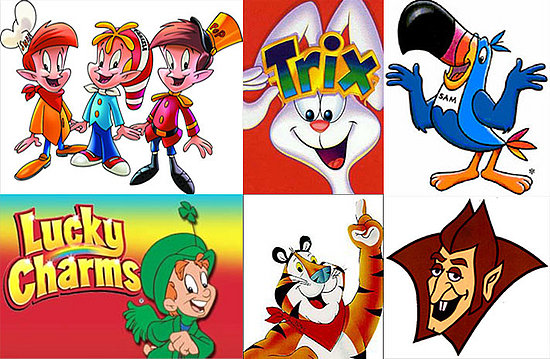Fatigue leads to stretching for anything new. It's why the Fonz jumped the shark. It's why we cringe every time a new kid gets thrown into our tried and trusted sitcoms. It's why writers, instead of coming up with fresh beginnings, start to resort to beginning with the end.
I can appreciate how television writers and filmmakers hate being stuck to linear plot lines but I think I had just about enough of screenplays that have me sit through a big dramatic scene in the first five minutes only to be subjected to a
FTB followed by some new-fangled font chromakey of "24 hours earlier". The technique has been done over and over again. I'm tired of sitting through it, especially when its a show I generally enjoy and want to keep up on the story arc. If a television pilot started with this technique, I would probably give it up ASAP.
Why does the conspiracy theorist in me think that there is one director who makes a living off of this stuff. The producers think... "You know what? We really need one of them time shifty episodes to really mix things up! Call in that guy we worked with for the time shifty episodes on the other 12 series we've done." And the cycle continues.
When one thinks of a movie like
Memento, it's easy to see that playing with timelines can be done in a unique way that is not only central to the plot, but also to the theme, characters, and atmosphere of the piece. When it's simply used as a cool plot devicem it's boring, it's meandering, and, more often than not, just plain sucks. I'm craving well told linear stories. When I see reruns of
All in the Family and watch 10 minutes of an unbroken scene that takes place in a living room, I don't condemn the pace and crave the music video phrenetic cuts of most of today's action films. I enjoy the teleplay, the acting, the ability to tell a story that takes place in one place at one time.
For years of teaching drama students it would be the biggest challenge to get them to construct a 3 minute scene that took place in a single location. The idea would arise that the scene would be about a bank robbery (because a 14 year old can't do a scene that doesn't have guns or violence) and the planning would start that would (in three minutes mind you) take you from 15 seconds about not having money, to a 10 second decision to rob a bank, to a 30 second exercise about planning the hold up, 20 seconds of the actual bank job, 1 minute of mindless shootout, and the final half minute of one or more crooks getting away. Have we lost our ability to follow a story in (while maybe not
real time) something at least close to it?
We have one hour action television shows that tell a story that rambles over days, weeks, or months. Even the show
24, which tries to build the illusion of being in real time suffers implausible plot holes of characters getting from place to place in totally unrealistic timeframes. The film
Timecode, by Mike Figgis, tried to solve the impatient audience dilemma by showing four real time stories at once... probably because he knew that audiences were quite unwilling to sit through a single linear story.
Sure, I applaud creators playing around with plot. Not every story can, or should, be linear, but the redundant use of television and film time shift gimmicks has been over done. It's jumped the shark or nuked the fridge, when it really should join Luca Brasi's slumber. To play with time in a television show or film should be done only when the story demands it to be told effectively and not in order to make a boring story more interesting. Can't you imagine a writing team sitting around a table saying "Dude... this script is really not that good, and we shoot tomorrow. What'll we do?" "I know... let's throw the scenes up in the air and let the sheets fall where they may. That will be the new order." And, after all this reassembly, when they put the scenes together in their new found chaos and find the story STILL sucks... "Well, let's at least put the big climax scene at the beginning. That's the best scene anyway and we'll be able to show it twice and save ourselves 3 minutes."
I'm not saying the job of a television writer is easy; after all how many times can find a unique way to explore the stoic Grissom in CSI, or the cranky Dr. House, or the dysfunctional Desperate Housewives, or the high horse riding Jack McCoy? Maybe we need to borrow a page from the Brits. We need to allow show creators to say "I think I've got about enough for a dozen good episodes here, maybe a season at best." We need studios to buy into the fact that a show, once noble when it first started, will more often than not slip down the ratings not when the audience gets tired, but when the writers do. And fatigue leads to stretching for anything new. It's why the Fonz jumped the shark. It's why we cringe every time a new kid gets thrown into our tried and trusted sitcoms. It's why writers, instead of coming up with fresh beginnings, start to resort to beginning with the end.





